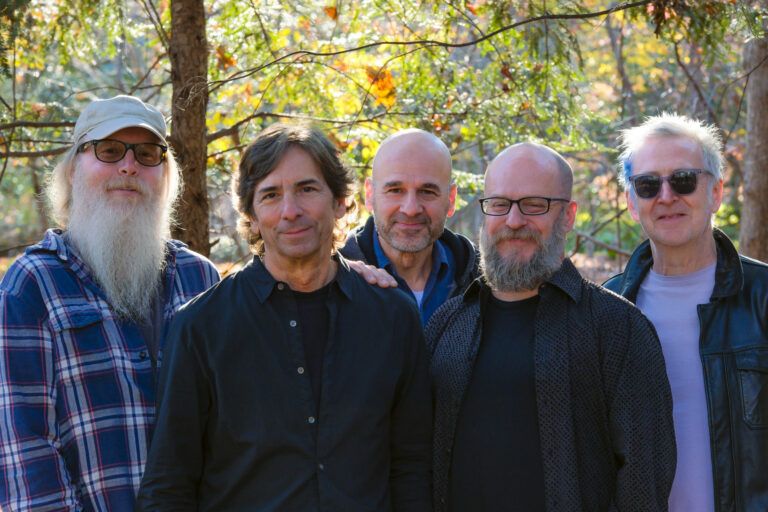Explore More
Shane Stevens: Songwriting Power Moves and the Making of ‘GRITS’
Shane Stevens blends creative persistence with authentic connections in contemporary music, showing how successful men build excellence through collaboration

At 2am in a Los Angeles studio, most people would have called it a night. Shane Stevens had already written three songs and recorded vocals for another artist. But when everyone else was ready to pack up, Stevens pushed for one more idea. ‘I told my co-producer Tedd T that I had an idea that I wanted to write,’ Stevens recalls. ‘I explained to him what I wanted the beat to be and told him not to play any chords because I had a chorus melody and lyric idea that I wanted to throw down.’ That relentless work ethic produced ‘GRITS’ (Girls Raised in the South), Stevens’ new summer single that shows how successful men create opportunities through persistence and instinct.
The song’s creation didn’t stop at 2am. After finishing the chorus, Stevens went home only to wake at 5.30am with the verse melody and lyrics fully formed. He immediately texted producer Tedd T asking to return and record the verse. This relentless pursuit of creative opportunities has become Stevens’ signature approach.
The Power Behind the Curtain
Stevens’ career shows how influence often comes from shaping culture behind the scenes rather than chasing public spotlight. His songwriting credits read like a who’s who of contemporary music: Carrie Underwood, Lady A, Walker Hayes, Ariana Grande, Selena Gomez and Meghan Trainor. His co-write ‘Fancy Like’ with Walker Hayes spent over 20 weeks at number one on Billboard’s Hot Country Songs chart and reached number three on the Hot 100, earning Stevens a Grammy nomination and 6x Platinum certification.
The song was recently named number six on Billboard’s Top Country Songs of the 21st Century, cementing Stevens’ place among the era’s most successful songwriters. His earlier hit ‘American Honey’ for Lady A also topped charts and earned him NSAI and BMI awards. These accolades aren’t just industry recognition – they’re career currency in Nashville’s competitive songwriting economy.
Stevens moves fluidly between genres, writing pop hits for Ariana Grande and Selena Gomez while crafting country anthems. This versatility reflects a key principle for high-performing professionals: mastering your core craft while remaining adaptable to different markets and opportunities.
From Writer’s Room to Centre Stage
Stevens’ transition from behind-the-scenes songwriter to performing artist shows how professionals can use expertise in one area to build credibility in another. Grammy and BMI awards serve as career milestones that open doors to new opportunities and collaborations. Stevens used his songwriting success to establish credibility as a solo artist, recently performing at the Grand Ole Opry with Sara Evans for their duet ‘I Can’t Quit’.
The song has garnered over 250,000 streams and secured placement on Spotify’s ‘All New Country’ editorial playlist for three consecutive weeks. Stevens also co-wrote ‘Higher’ for American Idol’s Breanna Nix, which hit number one on both iTunes Country and All Genre charts within 24 hours of release.
This career evolution shows how successful professionals build on existing relationships and reputation to expand their influence. Stevens didn’t abandon songwriting to become an artist – he used his established network and proven track record to support his new direction.
The Relationship Advantage
Stevens’ collaborations reveal how trusted professional relationships power creative careers. His partnership with producer Tedd T spans multiple projects, including both ‘GRITS’ and ‘I Can’t Quit’. Nashville’s songwriting community thrives on co-writing and collaborative relationships that often span decades and multiple career phases.
His duet with Sara Evans shows how established professionals can create mutually beneficial partnerships. Evans brings her star power and audience to the collaboration, while Stevens contributes his songwriting credibility and fresh material. Their Grand Ole Opry performance showcased both artists to a prestigious audience, reinforcing their professional relationship while advancing both careers.
Stevens has also performed at high-profile venues including Tin Pan South in Nashville, the BMI Key West Songwriter Festival and Live In The Vineyard in Napa. These appearances aren’t just performances – they’re networking opportunities that maintain visibility within industry circles and create new collaborative possibilities.
Authenticity as Direction
‘GRITS is a celebratory song about all the southern girls I grew up with and the new friends I made along the way in Nashville,’ Stevens explains. This focus on personal experience and regional identity reflects a broader trend towards authenticity in creative industries. Rather than chasing universal appeal, Stevens leaned into his South Carolina roots and Nashville connections to create something genuinely personal.
The song’s celebration of southern women taps into cultural pride and regional identity that resonates with audiences seeking authentic voices. High-performing professionals in creative fields succeed by developing authentic personal brands while maintaining industry credibility.
Stevens’ approach shows how leaning into one’s background and values can be both commercially and personally rewarding. By celebrating his roots rather than obscuring them, he creates content that feels genuine while appealing to audiences who share similar experiences or aspirations.
Lessons in Professional Excellence
Stevens’ career offers several principles for sophisticated professionals across industries. First, his 2am creativity session shows the value of persistence when others would quit. Adaptability and openness to new ideas often separate high performers from their peers.
Second, his transition from songwriter to artist shows how professionals can use existing expertise to expand their influence. Rather than starting from scratch, Stevens used his industry credibility and relationships to support his new direction. This career evolution required patience, timing and careful relationship management.
Third, Stevens’ collaborative approach shows how success often comes through partnerships rather than individual achievement. His relationships with producers, artists and industry professionals create opportunities that solo efforts couldn’t generate.
Stevens’ story ultimately shows how professionals can build sustainable careers by combining relentless work ethic, relationship building and authentic personal branding. His willingness to push for one more idea at 2am, coupled with his ability to maintain long-term professional relationships, created the foundation for both his songwriting success and artistic evolution.
As Stevens puts it: ‘I hope this song makes people laugh and dance the way it was intended. This one is for my girls! Y’all crank it!’ The statement reflects both professional confidence and personal authenticity – qualities that serve successful men well whether they’re writing hit songs or building careers in any field that values both craft and connection.




